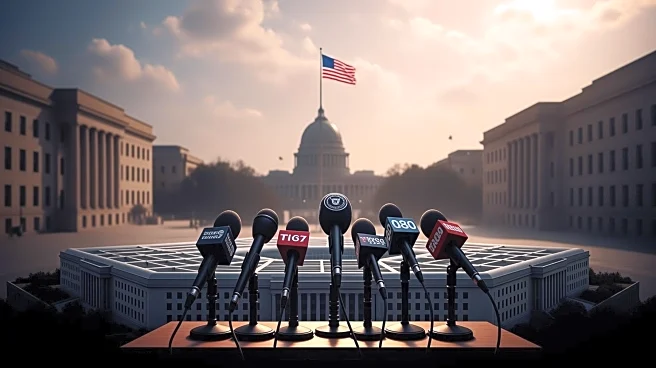What's Happening?
Dozens of journalists have turned in their access badges and exited the Pentagon in response to new restrictions imposed by Defense Secretary Pete Hegseth. The rules, described by the government as 'common
sense,' require journalists to sign a document that could lead to expulsion if they report on unapproved information. This move has been met with near-unanimous rejection from news outlets, who argue that the restrictions compromise their ability to report freely. As the deadline approached, journalists packed up their belongings and left the building, emphasizing their commitment to continue covering military affairs from outside the Pentagon. President Trump has expressed support for these new rules, citing the press as disruptive to world peace.
Why It's Important?
The departure of journalists from the Pentagon marks a significant shift in how military affairs are reported, potentially limiting public access to information about defense strategies and operations. This development raises concerns about transparency and the role of the press in holding government accountable. News organizations argue that the restrictions violate First Amendment rights and hinder their ability to inform the public about how taxpayer-funded resources are used. The move could lead to a reliance on government-controlled narratives, reducing independent scrutiny of military actions and policies.
What's Next?
News organizations have vowed to continue their coverage of military affairs despite the new restrictions. The Pentagon Press Association, representing multiple outlets, has spoken out against the rules, and journalists are expected to find alternative ways to gather information. The situation may lead to increased tension between the press and the government, with potential legal challenges to the restrictions. The impact on military reporting and public access to information will be closely monitored by media and civil rights groups.
Beyond the Headlines
The restrictions imposed by the Pentagon could have long-term implications for press freedom and government transparency. The move may set a precedent for other government agencies to impose similar restrictions, potentially leading to a broader erosion of journalistic independence. The situation highlights the ongoing debate over the balance between national security and the public's right to know, raising ethical questions about the role of the press in a democratic society.









